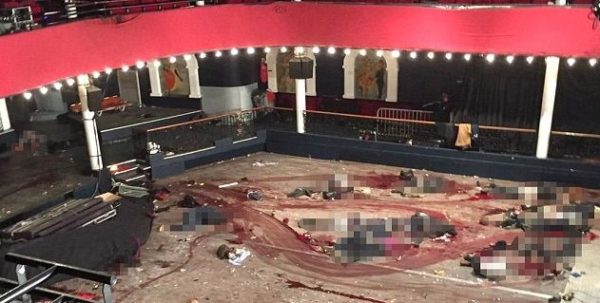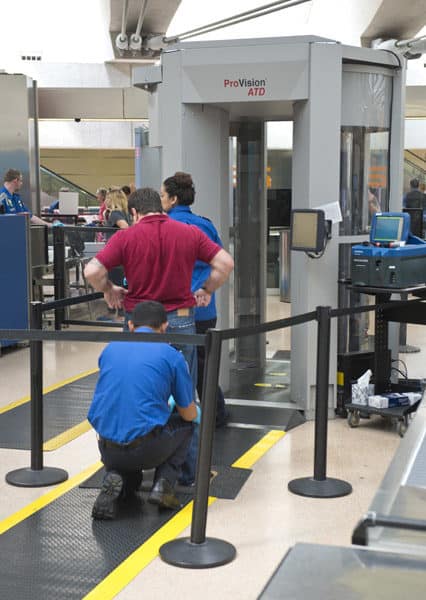Muslim Terrorism and the Decay of Public Life
Victoria Garland, American Renaissance, November 14, 2017
Two weeks ago, eight people were murdered in a terrorist attack in New York City. A “soldier of Islam” swerved a truck onto a crowded bicycle path, mowing down several people before jumping out and shouting “Allahu Akbar” as he waved fake guns at bystanders. There have been similar scenes throughout the West over the past few years: the Charlie Hebdo office; the Christmas market in Berlin; the Bastille Day celebration in Nice; La Rambla in Barcelona; Orlando’s Pulse Nightclub, the Ariana Grande concert in Manchester, etc.
In the wake of each attack, our rulers implicitly endorse what Ilana Mercer calls a cruel “utilitarian calculus.” The lost lives of a few are well worth the supposed benefits of Islamic immigration: an influx of workers to keep down labor costs, an increasingly diverse population to “enrich” Western culture, and a collective back-pat for our humanitarian virtue. But if we’re to weigh the true cost, we must recognize that the harm of terrorism is much broader than lives lost. The real aim of terrorism is terror, so why limit one side of the calculus to a body count? While few people will fall into jihadists’ direct line of fire, terrorism touches every Western life in a meaningful way, and we should be realistic about the costs we are shouldering if we continue allowing Muslims to live among us.
The effects of social and mass media
In every terrorist attack, there are bystanders who remain physically unharmed, but who still suffer a psychological blow. In the age of social and mass media, we all become bystanders.
The process begins a heartbeat after an attack. Twitter explodes with speculation about how many people are dead or injured, the number of attackers, what the motive might be, and of course, about the race of the offender(s). Images and video start to circulate. Soon the media catch up and trumpet the “breaking news” as hundreds of websites churn out different versions of the story. These stories are then posted on social media, and soon every person on the grid knows that, once again, we’ve been attacked.
Unlike the past, when our exposure to such an attack might be only a front-page newspaper story or a ten-minute evening news broadcast, social media leads to prolonged immersion in gory details. Omnipresent cell phone cameras provide raw footage, photographs, and witness testimonies, offering a firsthand perspective of the unfolding tragedy, making the events more personal than ever. Now we can feel the effects of terrorism while checking Facebook in the middle of staff meetings, scrolling through our Twitter feeds in a grocery line, or perusing the top stories in our Reuters apps while caught in traffic.

The uncensored version of this photo of the aftermath of the Bataclan terrorist attack went viral on social media.
An attack that killed “only” a dozen people doesn’t seem so insignificant when millions of people around the world watch the ground shake from explosions, flinch at the sound of shattering glass, and watch plumes of smoke rise ominously against the sky. The victims don’t seem so anonymous when we’re with them in their final moments, hearing screams and seeing bodies in pools of blood. While the attacks may be few, and the death tolls low, jihadist assaults on our minds are constant and relentless, as, headline by headline, they chip away at our sense of security.
The abdication of public space
Islamic terrorism compromises our freedom to move about our societies without fear. Participating in any event outside the walls of one’s home now could be a risk.
Last summer, shortly after news broke of the Manchester bombing, a friend decided to sell the concert tickets she’d been planning to give her daughter as a birthday gift. She’d seen heart-wrenching BBC footage of Charlotte Campbell, a mother whose fifteen-year-old, Olivia, was killed at the Ariana Grande show. It was a cruel disappointment for my friend, who would never get to see her daughter’s face light up after weeks of saving, and searching for the tickets. When she thought of Mrs. Campbell’s tear-stained face, she said that she couldn’t see any alternative.
My friend isn’t the only one for whom something as simple as planning a birthday surprise has been transformed by Islamic terrorism into a life-or-death decision. Jihadi attacks on mass transit systems lead commuters to change travel plans for fear of an attack. After reports of incidents like the subway bombings in St. Petersburg, Brussels, and London, alternatives such as ride-sharing services seemed to grow in appeal, but in a world controlled by the whims of violent jihadists, even the “safe” options can be dangerous. Just last week, we learned that the man behind the attack in lower Manhattan had worked as a driver for Uber. The same day, an apolitical friend told me that when she got home, she planned to ask her neighbors if they’d be willing to carpool for grocery shopping and other errands. She typically relied on Uber for these trips, but had noticed that many of her drivers were Middle Eastern, and while she knew that “most of them were probably fine,” a lot of them were probably Muslim, and she “didn’t want to have to worry about it.”
Islamic terrorism has affected air travel even more dramatically. Over the course of my short life, I’ve watched the security at my small, local airport grow from a single metal detector with a single agent to teams of TSA agents with bomb-sniffing dogs and a maze of stanchions that can take an hour to go thorough on holidays. Baggage is screened invasively, and innocent travelers are patted down publicly for forgetting to remove a belt or a few hairpins.

Credit Image: © Rex Shutterstock via ZUMA Press
I was once forced to spend half an hour unpacking, then repacking, a suitcase full of carefully-ironed clothes and Christmas gifts after a TSA “spot-check.” When I asked the agent what suspicious item had led them to single me out, he gave me a sheepish look and told me that they were on “extra-high security” and screening random people. When I glanced at the line behind me, I spotted the real cause: a group of Muslim travelers a few people back. This is the common denominator every time I’ve been held up at the airport since 9/11. Each Western family put through the wringer of airport security is being punished for Muslim terrorism.
Because of the actions of Muslim terrorists, people who arrive at airports excited about their trip emerge from security feeling harried, violated, and late for their flights. And who has gone through airport security or boarded the flight without the thought of terrorism crossing his mind? Sure, the odds of becoming a victim are low, but the thought still occurs. Why should we have to think such thoughts in our own homelands?
Assaulting our heritage
Islamic terrorism alienates us from our culture and stifles our expressions of identity and peoplehood. It’s no coincidence that so many terrorist attacks happen at events that honor our history and traditions, like the Christmas Market in Berlin, or the Bastille Day celebration at Nice, or in places like the Tower Bridge in London that symbolize a nation and its culture. These sites weren’t chosen simply because they offered open spaces with large crowds, but because terrorists recognize that instilling these places with an undercurrent of fear is a powerful way to insult our heritage and undermine our connection with our culture.
Our expressions of high culture — monuments, museums, sacred sites — are some of the things that make our lives meaningful. People who work all week find moments of transcendence when they look upon the Eiffel Tower, the Brandenburg Gate, or the Statue of Liberty. They’re reminded that their efforts are part of a proud history, that the people who came before them built great things, and they derive a sense of meaning and responsibility as custodians of that greatness. When terrorists cause us to view these shrines through unsightly barricades, in the presence of heavily-armed guards, they aren’t simply compromising our aesthetic experiences; they are forcing us to commune with our pasts and our identities, in their terms and by their rules.
Each time we forgo an evening at the symphony, decide to skip a Veterans Day parade, walk by monuments that our parents and grandparents could visit at their leisure and now find patrolled by militarized police, we grow a little more accustomed to living in occupied territory. We become a little better primed to be dhimmi under the rule of a caliphate.
Which way?
Critics may say that the psychological harms I’ve outlined are also caused by white terrorists and white mass shooters. If we should ban Muslims from our societies, should we not also ban white men, as Shaun King has facetiously suggested? Setting aside the facts that, when you control for population size, whites are underrepresented among terrorists and mass shooters, this question takes us back to our “utilitarian calculus.” White men are responsible for building and maintaining nearly every aspect of our civilization. Every population has its lunatics, and we try to manage them. But what unique benefits do Muslims bring us that outweigh the harm? That question deserves an answer.
And that harm will only increase as the Muslim population grows, and as we increasingly integrate our lives with social media. The Director General of the British Security Service reports that terrorist threats are at an all-time high, and that while the service will “do its best” to thwart them, people should gird for more of the attacks that London’s Muslim mayor has called “part and parcel of living in a big city.”
What would it would be like if the situation were reversed, and Muslim countries were facing mass migration from a sometimes hostile Western minority? Would they hang “refugees welcome” signs from their mosques, even as they were forced to protect their mosaics and minarets with armed guards and barricades? Would they applaud Westerners for making their societies more vibrant if white women walked around Medina with their hair uncovered and ankles exposed? And if some white, Western men began rioting and looting, “grooming” Muslim girls, and slaughtering Muslims in the streets, would Saudi Arabia, Iran, or Iraq hesitate to expel the foreigners? Would they brush off the attacks, and accuse anyone worried about the violence of “Europhobia,” and open their arms and borders to yet more Westerners?
Our forefathers built our civilization so that their descendants could live in a world that was just that: civilized. They believed that future generations deserved to live safe from exploitation and terror. Elsewhere, there are populations whose lands are torn by war, who lack resources, who face violent oppression. Their well-being is not so vital that we must secure it by risking our own.















